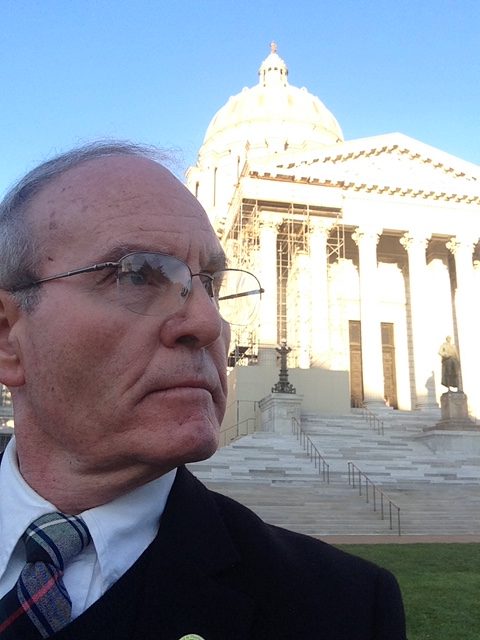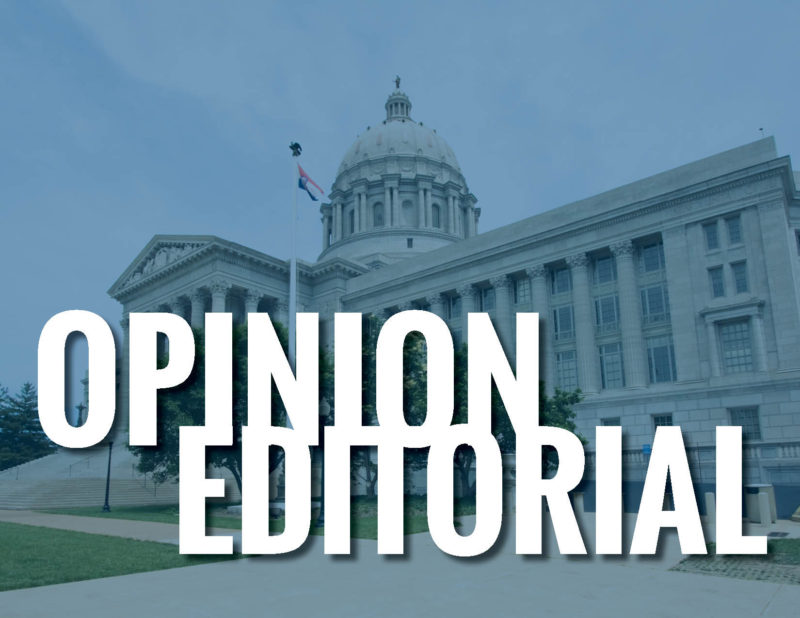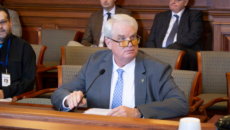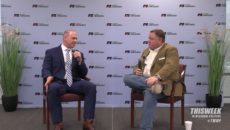Missouri has been moving to the back of the line compared to other states for almost 10 years. For more than a decade, the dogmatic anti-tax Republican-dominated legislature has compromised progress in our state in important areas, including infrastructure, education, economic development, and more. As with the fuel tax ballot issue of November 2018, Republican Governor Mike Parson stepped out of the shadow of his party last December to support the Wayfair internet sales tax legislation, allowing Missouri to join 48 other states in collecting sales tax from internet purchases. Only Missouri and Florida are holding out.

The issue of not taxing internet sales in Missouri was a very important one to retailers and government agencies prior to the COVID-19 pandemic, but now it is DO or DIE. Prior to the virus crisis, internet sales were climbing and retail sales were in decline. Part of the problem was that the brick and mortar stores were competing on an uneven playing field since they had to collect sales taxes and the internet vendors did not. During the pandemic, the problem has inadvertently magnified exponentially and uneven taxation will make it more difficult for consumers to go back to supporting local merchants.
There are two cataclysmic consequences that can be mitigated by taxing internet sales. One is that if our retail establishments cannot reopen, then we will live in ghost towns of shuttered stores and shops making our existence monotonous, austere, and impersonal. The second consequence is worse yet: Our cities, counties, and state will not have nearly the adequate revenue for even our basic needs of police protection and infrastructure maintenance.
Governor Parson recognized and announced last December that Missouri needed the $60-80 million per year that the state would receive from internet sales tax for emergencies and for basic highway and other infrastructure maintenance and construction. In 2018, Parson accepted the recommendation of the 21st Century Missouri Transportation Task Force and supported Prop D for a modest increase in Missouri’s very low fuel taxes just so that MoDOT could tread water.
The only way the Republican-dominated legislators finally put the Prop D 10 cent fuel tax increase on the November 2018 ballot was to tack it on at the last minute to an unrelated bill and then weighing it down with confusing language. Prop D surprised ultra-conservatives with a stronger than expected showing, losing by only 4 percentage points despite the handicaps imposed.
The challenge for cities and counties to balance their budgets to provide police, public works, and parks services had already been increasingly difficult because a majority of their revenue comes from sales taxes. The 2020 COVID-19 pandemic has exacerbated this challenge by driving consumers to the internet and conditioning society to buy online.
Citizens still need and demand police protection and road and bridge maintenance, but by sidestepping sales tax on the internet, there will not be enough money to pay for police officers and public works improvements. Citizens want parks and recreation opportunities, and during the pandemic, many get some fresh air in a local park to unwind and get a break from being cooped up. Those parks and their maintenance are paid for largely by sales taxes without which parks could become unaffordable luxuries.
In 2018, as a panel member of the bi-partisan 21st Century Missouri Transportation Task Force, I appreciated the leadership of Governor Parson in accepting our recommendation for a modest 10 cent fuel tax increase. In 2020, as the former Florissant mayor and as one of the millions of Missourians worried about the health and economic recovery from the COVID-19 epidemic by our communities, counties, and state, I appreciate the leadership of Governor Parson regarding internet sales tax revenue.
Once again Governor Parson has stepped out of the notorious tax-stingy shadow of his party. Let us join him in advocating for the passage of a meaningful 2020 internet sales tax bill by the Missouri Legislature. We need a law without counterproductive revenue-neutral language so as to raise the money we need to recover from the crisis of our lifetime and to give our retailers the level playing field they need to recover on.
EDITOR’S NOTE: For up-to-date information on coronavirus, check with the CDC and DHSS.

Thomas P. Schneider was the mayor of Florissant from 2011 to 2019. Prior to that, he served on the Florissant City Council from 1979 to 2011.












